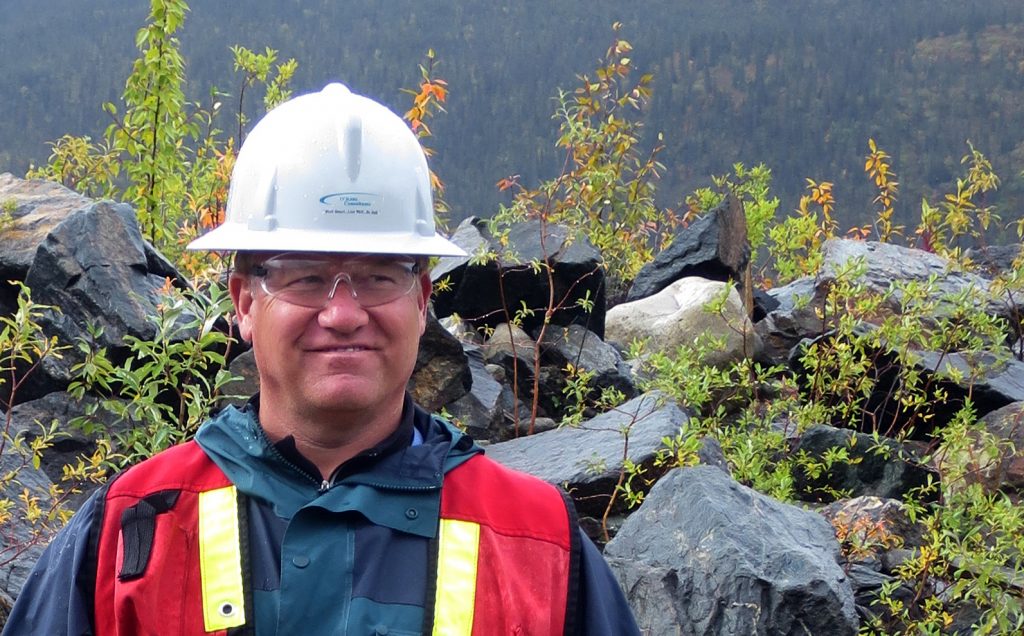Getting Closure: An LDI Podcast
Hosted by Mike O’Kane of Okane Consultants, the Getting Closure podcast uses the LDI’s 12 principles of landform design to explore the challenges presented by the current state of mine closure and reclamation and find innovative approaches to transforming the field into a sustainable and responsible practice.

Episode 8: DOWN TO EARTH
Mark Swinnerton of Green Gravity discusses his insights on alternative land use potential for closed and legacy mines, but also planning for and creating renewable energy throughout the mine life cycle as part of closure planning. Mark’s perspective in this space is wide and varied as a result of the breadth of his incredible experience working in the mining industry for a large mining house, and really understanding how we influence investment in our industry and advance projects.
Episode 7: THINKING OUTSIDE THE BOX with LOIS BOXILL
Lois Boxill is a member of the LDI’s Board of Directors for good reason, not the least of which is a unique perspective on how to approach a wide variety of subjects involving mine closure — and her ability to apply ideas and experiences from farther afield to the tasks involved in landform design.
Episode 6: ANDY ROBERTSON’S LEGACY
Season 2 of Getting Closure continues to explore the principles and people behind responsible mine closure and reclamation, beginning with an interview with a giant in the field, Dr. Andy Robertson — the “R” in SRK consulting.
Episode 5: KEEPING AN EYE ON THE FUTURE
Getting Closure heads to the Elk Valley in southeastern British Columbia for its first video episode to explore a mine that’s already embraced the basics of landform design. Mike talks with John Pumphrey, the president of North Coal, and Robert “Stubby” Williams, the company’s First Nations coordinator. They discuss how North Coal has prioritized collaboration, Indigenous and community concerns, and why they chose not to mine a particularly sensitive area.
Episode 4: LEARNING AND LEADING FROM THE LAND
Des Nedhe Group CEO Sean Willy.The first principle of landform design is mine with the end in mind and create a shared vision among the mine, local communities, and Indigenous peoples. In this episode, Mike O’Kane discusses how to turn that principle into practice with the help of Sean Willy, CEO of the Des Nedhe Group in Saskatchewan. Together they examine the value of Indigenous leadership and participation in closure planning, the changing nature of impact benefit agreements, and what true collaboration really looks like.
Episode 3: ASKING THE RIGHT QUESTIONS
Mike O’Kane interviews Corinne Unger, an Australia-based specialist in mine rehabilitation and closure planning who has undertaken research on abandoned mines and post-mining land use around the world and is currently working on her PhD. Their conversation, conducted over Skype between Calgary and Brisbane, covers the importance of good mentors, navigating an industry where women are usually in the minority, and trying to convince mines and regulators to incorporate a social dimension into mine planning.
Episode 2: FROM GEOCHEMISTRY TO HOCKEY … AND BACK
Mike O’Kane interviewed Mark Logsdon for the second episode of LDI’s new podcast series. Mark specializes in geochemistry and mineralogy, and has worked on some 250 mining projects during a career spanning almost 50 years. Geology, mentorship, the importance of visiting as many mines as possible, and even playing hockey against Ken Dryden, figured prominently in the discussion. Mark emphasized the need to develop communities of practitioners with varying expertise to solve problems together. Several more podcasts are planning for the coming months.
Episode 1: THE BEAVER
Mike O’Kane and Gord McKenna met Feb. 12, 2020, at the Fairmont Hotel of the Vancouver International Airport to record a conversation on the origins, goals, and plans of the Landform Design Institute. They called on their own professional histories, and exchanged several stories on approaches to landform design, to give listeners a sense of the urgency of supporting the Institute’s new approach to more responsible and sustainable mining and reclamation. Their conversation will be the first in a podcast series the Institute is planning to release in the coming months.